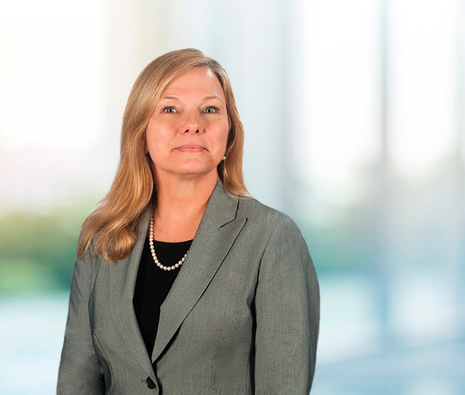South Carolina Unfair Trade Practices Act: When Acts Are Not Capable of Repetition and Other Important Issues
In South Carolina, as in most jurisdictions, unfair methods of competition and unfair or deceptive acts or practices in the conduct of any trade or commerce are unlawful. See South Carolina Unfair Trade Practices Act (the “Act”), S.C. Code Ann. §39-5-10, et seq. In order to be actionable, an act must be unfair or deceptive, and must have an impact upon the public interest. Impact on public interest may be established if the act or practice has the potential for repetition. Potential for repetition may be demonstrated by showing the same kind of action previously occurred, making it likely it will continue to occur without deterrence, or by showing a company’s procedures create the potential for repetition of the unfair and deceptive act. While myriad cases have addressed, interpreted and applied the Act, few have as succinctly dealt with whether acts incapable of repetition may be said to have potential for repetition as the recent case of Turner v. Kellett, 2019 WL 455101 (February 6, 2019).
Michael and Carmen Kellett owned Buddy’s Garage, an auto repair business. They had one employee, Michael Finchem, who was the mechanic and who otherwise handled the day-to-day operation of the business. Natasha Turner took her car to Buddy’s for repairs. After receiving in excess of $4,000 from Turner and almost $2,000 from Turner’s insurer, Buddy's released her car to her, with no repairs having been made. Following her complaint to Buddy's, a small sum was refunded to Turner, but the Kellets refused to return the balance of her money. Turner filed suit against the Kelletts alleging, among other causes of action, violation of the Act. The trial court found the Kelletts violated the Act and awarded treble damages, but somewhat curiously refused to award attorney’s fees to Turner. The case is before the court upon the parties' cross appeals.
Turner was the last customer of Buddy’s Garage; the Kelletts fired Finchem and permanently closed the business, testifying that they suspected Finchem was defrauding them by using the garage accounts to buy parts then performing work on vehicles at his home. The Kelletts went on to admit, on appeal, they committed an unfair trade practice, as anticipated by the Act, by charging Turner for repairs that were not performed. Arguing against the ruling they violated the Act, the Kelletts asserted their unfair acts had no impact upon the public because they were incapable of repetition. The court agreed. Because Buddy’s was no longer in operation, future repetition of the acts to which Turner was subjected was precluded.
Further analyzing the applicability of the Act, the court found no evidence in the record that suggested the Kelletts had a history of unfair billing practices making it likely such unfair practices would continue. While the Kellett’s testimony raised significant questions as to Finchem’s atrocious conduct prior to the closure of Buddy’s, such a scheme was intended to defraud the Kelletts, not Buddy’s customers. Thus, Finchem’s bad behavior did not establish evidence of a history of the same kind of unfair act to which Turner was exposed. Consequently, the court reversed the trial court’s ruling on the Act.
Further addressing the case, and Turner’s cross appeal, the court noted the trial court’s failure to award attorney’s fees upon its determination the Kelletts violated the Act. Because, however, that finding was reversed, the court declined to further address the issue.
The opinion provides additional practical information to practitioners. Turner asserted a breach of contract claim upon which the trial court failed to rule. Because the court did not rule, and because neither party pursued a Rule 59(e) motion, the issue was not preserved for appeal. Thus, Turner could not recover under a breach of contract theory despite the Kellett’s concession on appeal that they breached a contract with Turner, thereby entitling her to some amount of limited damages. Further, Turner prevailed on her claims for conversion, fraud and misrepresentation, and was awarded punitive damages. While punitive damages are recoverable in conversation claims in which the defendant has acted willfully, recklessly and/or with conscious indifference, and while punitive damages are similarly recoverable for fraud, the trial court failed to consider the requisite eight factors relative to an award of punitive damages.i As a result, the issue of punitive damages was remanded to the trial court. Lastly, but equally significant, the court, relying upon an oft ignored rule of law, further instructed the trial court to award costs to Turner as the prevailing party.ii
While this opinion touches, albeit briefly, upon a few important issues, it is pivotal for its concise determination that because the bad actor on behalf of Buddy’s had been terminated and because Buddy’s was permanently closed, there was insufficient evidence that the unfair and deceptive acts at issue were capable of repetition.
iSee Gamble v. Stevenson, 406 S.E.2d 350 (1991).
iiSee S.C. Code Ann. §15-37-10
Click the above link to subscribe to
Nexsen Pruet's TIPS Alert.
Cheryl D. Shoun is a trial attorney and certified mediator whose experience includes construction law, insurance defense, personal injury defense, employment litigation and medical malpractice. As a frequent writer, she serves as editor for Nexsen Pruet's TIPS: Torts, Insurance and Products Blog.
About Maynard Nexsen
Maynard Nexsen is a full-service law firm of 600+ attorneys in 31 locations from coast to coast across the United States. Maynard Nexsen formed in 2023 when two successful, client-centered firms combined to form a powerful national team. Maynard Nexsen’s list of clients spans a wide range of industry sectors and includes both public and private companies.
Related Capabilities








